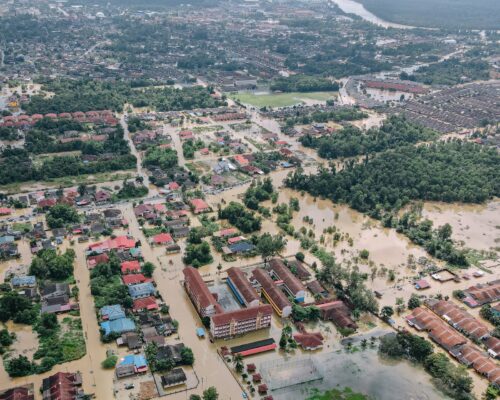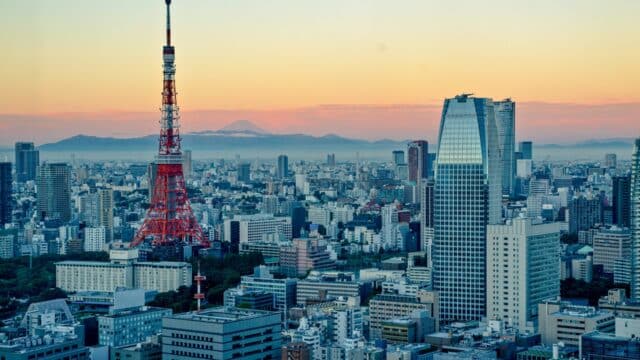The Issue with Japan’s ESG Reporting
Photo: Shutterstock / yoshi0511
05 June 2024 – by Tim Daiss
Corporate Japan has been under fire from activists, targeting companies over their sustainability and environmental, social and governance (ESG) activities.
Japan is Asia’s busiest market for shareholder activism. Through June 2023, some 89 campaigns were voted on at Japan’s top 225 listed companies – accounting for more than 10% of the global total. That’s up from 63 in the year before. With shareholder activism on the rise, Japanese companies are increasingly being judged on their ESG progress.
A large number of Japanese corporate giants, especially in the energy and power sector, have also been targeted for promoting false climate change practices along with greenwashing allegations.
These companies and the banks that often fund their capex-intensive projects have been accused of taking advantage of lax environmental policy and weak Japanese government initiatives to phase out politically charged gas and LNG investment.
ESG in Japan: Training Needed
However, part of the problem may be more simple to identify. A lack of trained staff needed to help these companies pursue ESG and sustainability goals makes it more difficult, argues Kim Schumacher, associate professor in ESG and sustainable finance at Kyushu University. Worse yet, he explains, many companies promote existing staff to sustainability or ESG investment roles, often with little material experience or relevant exposure.
“They have created novel managerial positions – often with sustainability or ESG-related job titles – basically marketing roles in disguise. Few genuine experts are filling key sustainability or ESG posts inside Japanese companies or financial institutions,” he said. As such, awareness, proper hiring and training would be vital to addressing this deficiency.
Japan’s Over-reliance on Fossil Fuels
Some of Japan’s sustainability problems also stem from its over-reliance on fossil fuels to power its electricity sector. Despite a population of around 123 million people, Japan is the world’s second-largest liquefied natural gas (LNG) importer after China. It is the fifth-largest crude oil importer and one of the world’s largest investors in so-called clean coal. As of 2022, fossil fuels accounted for 85% of Japan’s primary energy consumption.
Japan also funds carbon, capture and storage (CCS) technology, which consistently underperforms. Reports also show that CCS has leakage risks that its proponents do not address.
Japanese corporate giants are still bankrolling LNG supply deals and projects at home and overseas. On May 16, Tokyo-based power giant JERA pledged to invest some USD 32.4 billion over the coming decade in the energy sector. While this includes renewable energy sources, it also earmarks more investment in problematic hydrogen, ammonia and LNG.
Renewable Power Generation
JERA didn’t show how much money would be allocated to each energy source. However, funds would be better earmarked for renewable energy projects since they’re cheaper to build than their fossil fuel counterparts. Examples of renewable energy sources include wind power, solar power, bioenergy and hydroelectric power, including tidal energy.
Japan’s vast coastline, stretching some 30,000 km, also makes it ripe for offshore wind power development, including deep ocean and floating offshore wind power development.
JERA also views LNG as a low-carbon energy source. However, gas emits at least half of the CO2 as coal, the dirtiest fossil fuel, when used for power generation. Methane leakage across the entire value chain makes the problem worse. Due to its structure, methane traps more heat in the atmosphere per molecule than CO2, making it some 80 times more harmful than CO2 after it’s released.
Mixed Scorecard
Over the past few years, around 4,000 Japanese-listed corporations have adopted ESG standards, but their success depends on who you ask. Kathlyn Collins, vice president and head of Responsible Investing and Stewardship at Matthews Asia, sees Japan as making progress.
She told Energy Tracker Asia that the country has been making strides despite its operating environment being “challenging given its energy mix, while the [Japanese] government has made bold pledges around decreasing energy dependency and shifting the mix”.
Yet, it appears that Japanese governance standards have been falling short, disappointing both domestic and international investors looking for corporate Japan to take a global lead.
A Governance Problem
Governance has traditionally been considered a weak point for corporate Japan due to complex business structures, excess cash on the balance sheet, unclear succession planning, conservative business practices and inefficient capital structures.
Therefore, companies need to realise that conservative business practices and keeping a low profile don’t help their sustainability endeavours or any achievements that need to be highlighted to offset growing criticism over their practices. The problem becomes more acute when many Japanese companies need to show their ESG efforts on an international stage that demands greater transparency.
Collins argues that “there’s a very strong compliance culture in Japan and more of an external collectivism where companies do not want to be seen as the only ones not doing something.”
She points out that Japan had the largest number of supporting companies and organisations to the TCFD (Task Force on Climate-related Financial Disclosures) at 1,158 as of December 22, 2022.
The TCFD is an advisory body set up by the G20 to address concerns around insufficient disclosure of climate-related risks and opportunities for businesses. By 2022, 97 of the 100 largest companies in the world were found to have declared support for the TCFD, reported with TCFD recommendations or both. However, by the end of last year, only 4% of companies disclosed that they were totally in line with TCFD recommendations.
by Tim Daiss
Tim has been working in energy markets in the Asia-Pacific region for more than ten years. He was trained as an LNG and oil markets analyst and writer then switched to working in sustainable energy, including solar and wind power project financing and due diligence. He’s performed regulatory, geopolitical and market due diligence for energy projects in Vietnam, Thailand and Indonesia. He’s also worked as a consultant/advisor for US, UK and Singapore-based energy consultancies including Wood Mackenzie, Enerdata, S&P Global, KBR, Critical Resource, and others. He is the Chief Marketing Officer (CMO) for US-based lithium-sulfur EV battery start-up Bemp Research Corp.
Read more








